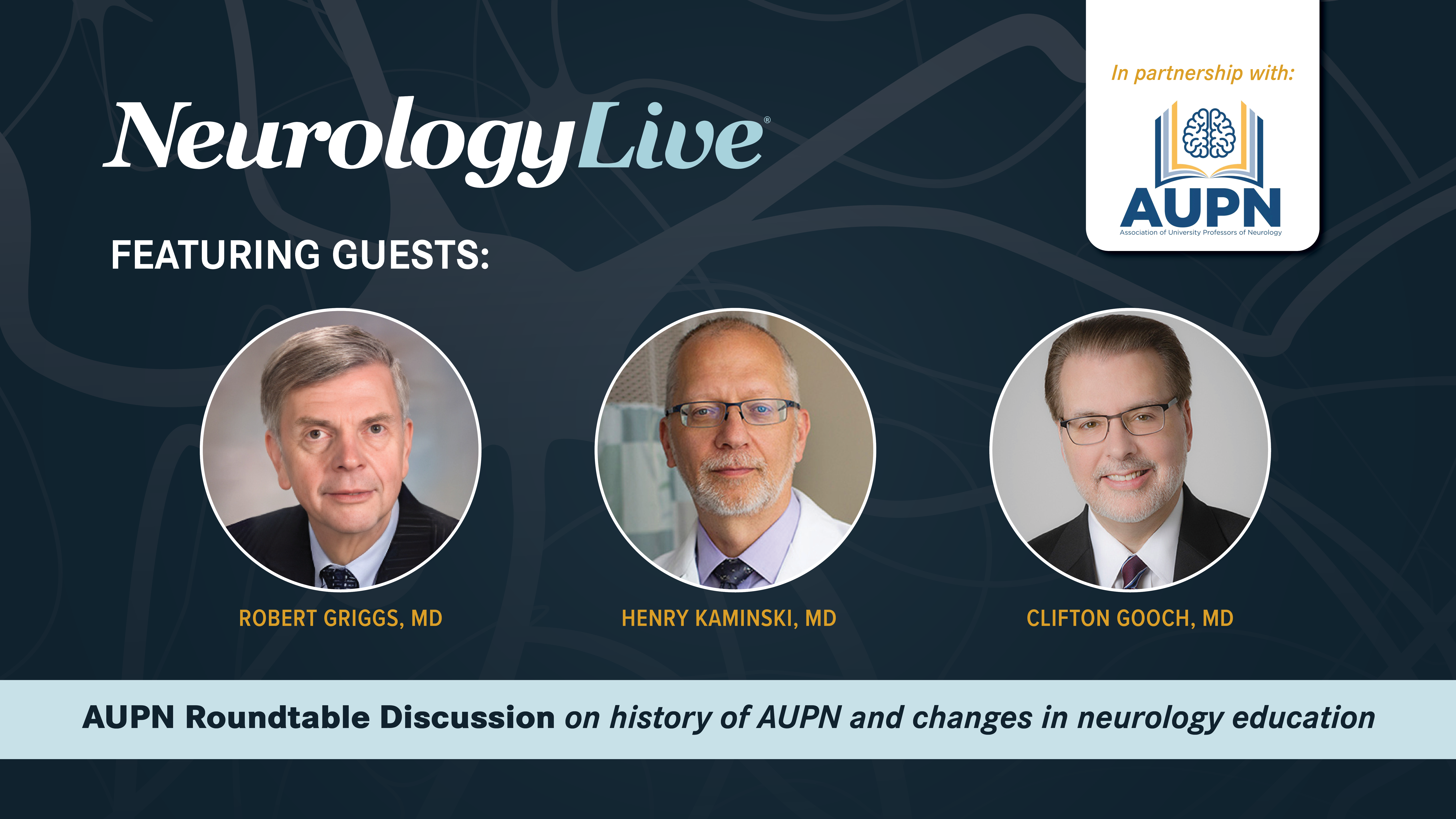
Future Changes to Neurology Residency and Fellowship Programs

A trio of former and current neurology department directors discussed ways in which residency and fellowship programs may change as technology and therapeutic capabilities continue to expand. [WATCH TIME: 8 minutes]
WATCH TIME: 8 minutes
The Association of University Professors of Neurology (AUPN) began back in 1968 as an organization of neurology department chairs to inform and curate neurological education, clinical practice and research, and to be a combined voice for neurology leaders to influence policy. That year, the organization had its first formal meeting, where Maynard Cohen was selected as president. Since its formalization, the AUPN has supported department chairs through its educational offerings that are geared toward the leaders in neurology departments including program directors and clerkship directors.
Over time, there have been dramatic changes in all aspects of neurologic care, and along with this, neurology education has transformed. These changes have affected all aspects of education across the educational continuum, including learners, teachers, educators, content, delivery methods, assessments, and outcomes. Several in the field believe that unification of educations across professions and specialties will allow for increased leverage of resources, meta-data, skillsets, and perspectives to develop a core foundation for all health professions so that students in different professions learn with and from each other.
To gain a greater understanding about the changes in neurology, how its taught, and the impact the AUPN has had in neurology departments, NeurologyLive® hosted a Roundtable Discussion featuring former AUPN presidents Robert Griggs, MD; Clifton Gooch, MD; and Henry Kaminski, MD. In this episode, the trio commented on the potential adaptations to residency and fellowship programs in the next 5-10 years based on the strides made in neurology. Specifically, they spoke on the incorporation of new technologies, potential to prevent diseases, ways to provide more high-quality care while overcoming challenges with resources and staffing.
Marco Meglio: What upcoming concepts do you foresee taking center stage in neurology residency programs and departments over the next five to ten years? How do you envision these changes unfolding and what directions do you anticipate?
Henry Kaminski, MD: I'd like to weigh in on this. The landscape has transformed remarkably over the last six months due to generative AI and its rapid advancements. One notable development is the ability to conduct immediate quantitative analysis of telemedicine examinations. This offers an objective assessment from a neurological standpoint. Additionally, there's the potential for avatars to conduct standardized visits. These innovations enable closer and more precise patient monitoring, especially for those who aren't currently receiving care from specialized centers. Moreover, the realm of big data analysis, involving both biological and clinical EMR data, offers the potential to predict diseases before they even occur. This necessitates that residents learn how to harness technology to enhance their diagnostic skills while maintaining the essence of patient care and education. This paradigm shift also presents an opportunity for us to allocate more meaningful time to patients, explaining advanced therapies and modified monitoring methods. This way, patients won't have to endure long commutes only for short clinic visits with unanswered questions. Though these changes are promising, adapting our practices will be a challenge.
Robert Griggs, MD: I'd like to emphasize two aspects that have traditionally been overlooked: quality of care and disease prevention. We now have the knowledge to prevent conditions like stroke, yet less than 1% of people are following through. This discrepancy needs attention, and we must find ways to motivate people to act on what we know is beneficial. Similarly, the concept of quality improvement demands more focus. High-quality care is cost-effective and conserves healthcare resources. We must invest in research that furthers the understanding of quality improvement. While organizations like the National Cancer Institute have allocated a significant portion of their budgets to implementation research, neurology has only recently followed suit. The potential for cost savings through preventive care is vast, and we need to expedite our efforts in this direction.
Clifton Gooch, MD: I wholeheartedly agree with these points. I want to reiterate that we are in an immensely exciting era for neurology. In a single generation, we have witnessed neurology's transformation from primarily diagnostic work to a full-fledged therapeutic specialty. This progress has been unparalleled and continues to gain momentum. Notably, other fields like oncology took decades to reach where neurology is now. We have the capability to treat an unprecedented number of conditions, including ones previously thought incurable. This shift, as Birch pointed out, is still ongoing. Previously, we were known for "diagnose and adios," but now our therapeutic capabilities are at the forefront. With advancements in gene therapies and other innovations, neurologists are at the forefront of a rapidly evolving landscape. However, it's crucial to consider the economic sustainability of these advancements and ensure that the healthcare system remains robust. As we treat more patients, especially with the aging population, questions about healthcare funding and accessibility arise. Our specialty also needs to focus on ensuring that everyone has access to essential medical care, a challenge that needs collective attention. Moreover, AI will play a transformative role, but it's important to remember that it won't replace physicians; instead, it will assist those who understand how to leverage it effectively. Overall, it's an exhilarating time to be in neurology, and the potential for groundbreaking breakthroughs is immense. While it's bittersweet that some of us won't witness the full extent of this progress, future generations of neurologists will undoubtedly be part of revolutionary advancements that we can only imagine today.
Newsletter
Keep your finger on the pulse of neurology—subscribe to NeurologyLive for expert interviews, new data, and breakthrough treatment updates.










